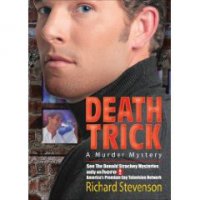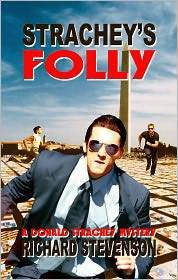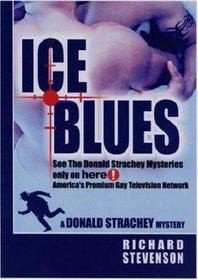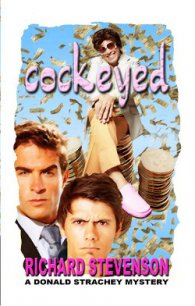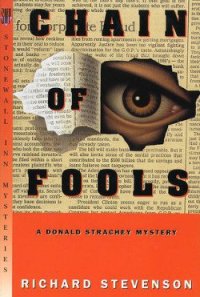The 38 Million Dollar Smile - Stevenson Richard (е книги TXT) 📗
dollars for a consultation. Others were big-time operators who
advised the high-and-mighty and collected substantial fees for
96 Richard Stevenson
themselves or for temples whose abbots were in a position to
dispense next-life merit points to present-life sinners.
Among the other celeb seers was one Pongsak
Sutiwipakorn, who had failed to predict the last military coup
but had made headlines much more recently when he had
publicly forecast yet another — upcoming — coup by the end
of April. A third popular seer, Khun Surapol Sutharat, got the
press’s attention by insisting that his charts offered
incontrovertible proof that there would not be a military coup anytime soon. A fourth seer, Thammarak Visetchote, had
recently been making a name for himself by advising a group of
younger army officers who were known to be fed up with their
older commanding officers and with the old guard’s corrupt
ways. Seer Thammarak’s specialty was numerological forecasts.
Again, I wondered how much these guys had in common with
Nostradamus and how much with Karl Rove.
I printed out some of the data on the seers and stuffed the
pages into my pocket before venturing outside and walking
around the corner to the food stalls on hectic Rama IV Road.
The sun was setting, but the traffic-fouled air was still
suffocating. I thought Timmy and Kawee might appreciate
some eats, so I picked up some cold diced pork salad with lime
juice and galangal, a bag of cooked jasmine rice, and a half liter of fish soup in a plastic sack. For a snack, I had some pineapple chunks on a stick, passing up the deep-fried cicadas.
When I walked back to the Internet shop, I saw Pugh there
looking up and down the street. His car was illegally parked,
half on the narrow strip of sidewalk and half sticking out in the soi, and plainly he was looking for me. When he spotted me, he
urgently beckoned. As I walked up to Pugh, I could not tell
what the look on his face meant, only that his news, if any, was going to be bad.
CHAPTER ELEVEN
“Both of them?” I said. “They took both Timmy and
Kawee?”
“I’m afraid so, yes, Mr. Don.”
“But why Timmy? They may think Kawee can lead them to
Griswold. But what’s the point of dragging Timothy along? To
me, that doesn’t add up.”
We were in Pugh’s Toyota banging along Sathorn Soi 1
toward Griswold’s condo. The call had come to Pugh from one
of his innumerable police department snitches — the Johnny
Walker brigades, he had called them — alerting him that four
armed men had arrived at Griswold’s building half an hour
earlier. They had pistol-whipped the security guard and ordered
Mr. Thomsatai to take them up to Griswold’s apartment and let
them in. They then forced the condo’s two occupants, a Thai
lady-boy and an older farang, to leave with them in the black
SUV they had arrived in.
I said, “Thomsatai. That degenerate. They bought him.”
“Possibly.”
We lurched around the corner onto Soi Nantha. The sun
was down now, and the sky was infused with a gold even richer
than that of the spires on the temples over near the king’s
palace along the Chao Phraya River, a mile or two north of us.
Pugh slowed a bit for the speed bump behind the Austrian
Embassy, then hurtled past Paradisio, its entryway thick with
Sunday day-off comings and goings.
“But it was Thomsatai who phoned the police?” I asked.
“He had to. The security guard would have notified his
superiors, who would have acted. They have a reputation to
protect, for business reasons.”
“And the guard is okay?”
“Apparently.”
98 Richard Stevenson
“That’s good. It means they are not simply gunning people
down. They want to get what they want to get. In some cases,
anyway.”
Neither of us spoke out loud of the balcony-plunge deaths
of Geoff Pringle and then the famous fortune-teller.
I asked if anybody got a description of the car.
“Generally, but no tag number. The traffic police have been
alerted to watch for a black four-by-four with tinted windows
containing four men and their two abductees.”
“Is anything likely to come of that?”
As Griswold’s building came into view, Pugh said, “It’s a
pricey car. Some enterprising officer might view it as a mark for a quick two-hundred-baht hit and then discover it has captives
inside it. We would need good luck for that,” Pugh added, and
tooted his car horn three times, one for the Buddha, one for the Dharma, his teachings, and one for the monks who preserve the
Buddha’s wisdom.
We pulled in behind a cop car that was parked in front of
the apartment building, pink bougainvillea petals from a nearby
bush already gathering on its blue hood. A second car from
GUTS security services was parked nearby, and a new younger
and bigger guard stood watch at the sentry hut. A few of the
building’s occupants and some neighbors had gathered, but they
seemed to be keeping their distance.
“There must have been witnesses,” I said, as we headed into
the building. “There was still some daylight when they did it.”
Pugh said, “Do you really think any of these people would
describe what they saw, and by so doing establish their existence inside what most of my fellow countrymen regard as
the diseased and capricious minds of the police? Dream on,
Khun Don, dream on.”
A plainclothes detective and his uniformed associate had Mr.
Thomsatai in a cubicle off a polished marble lobby of the type
that once must have housed royalty but was common now in
luxury apartment buildings. Was there a finite supply of marble
in the world, as with fossil fuels? This was surely the case, but THE 38 MILLION DOLLAR SMILE 99
which would run out first? If Timmy had been there, he would
have had an informed opinion on this question. But he wasn’t,
and I wanted to strangle to death until he lay in a heap on the
shiny marble floor whoever had taken him from me.
Mr. Thomsatai glanced at Pugh and me when we came in,
then away. This guy was guilty of something, probably
practically everything. Why had the condo association hired this conscienceless crook? Thomsatai had violated two of the five
explicit moral precepts of Buddhism — no lying, no stealing —
and yet here he was, playing the aggrieved victim. I did not,
however, walk over and kick him hard, as I was impelled to do.
Pugh politely wai- ed the plainclothes officer — raised palms together, a small bow — and the cop wai - ed him back. A
round-faced man in his forties with an expertly shaped pile of
gleaming black hair on his head, the detective was the senior
Thai in the room, but he plainly knew and respected Pugh, for
his abilities perhaps, or his Johnny Walker.
Pugh introduced me to the two cops as the “boyfriend” of
Timothy Callahan. It was given as a neutral description and
received that way. Pugh also told Detective Panu
Pansittivorakul that I was a private investigator searching for a missing American, Gary Griswold.
“I am aware of that,” Panu said with no particular
expression. “How are you making out with your search, Mr.
Don?”
“Nothing yet,” I said. “But we have some ideas. I think we
can assume that this abduction is in some way tied to Gary
Griswold’s having gone into hiding. Has anybody IDed any of
the four goons?”
“Unfortunately, no. We have descriptions, but no one
